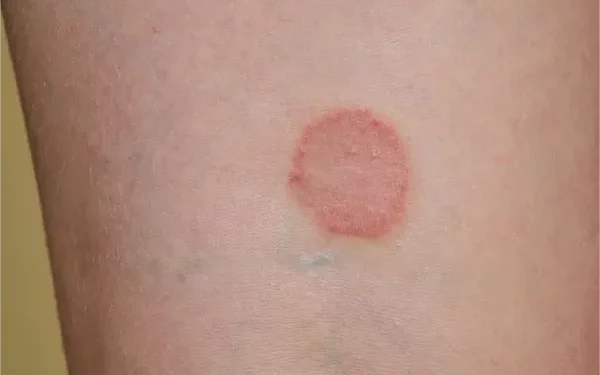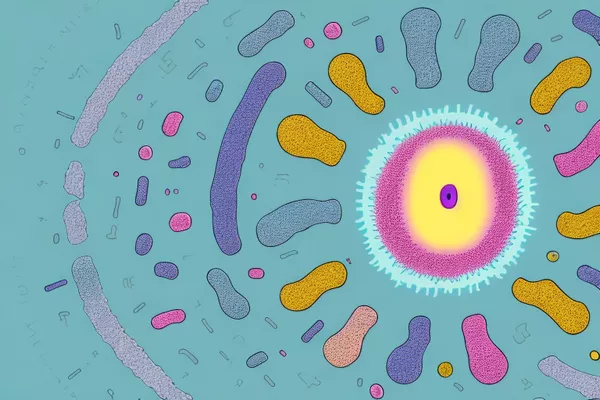Ringworm is a common fungal infection that affects the skin, scalp, or nails. It is caused by a type of fungus called dermatophytes. Despite its name, ringworm has nothing to do with worms. It is a skin condition that forms a circular, red, itchy rash. The good news is that ringworm is usually treatable, but the question many people have is whether it can go away on its own or if treatment is necessary. In this article, we will explore whether ringworm can resolve without intervention, the factors that affect its duration, and the best ways to treat it.
What is Ringworm?
Ringworm is a superficial fungal infection that occurs when dermatophytes, which thrive in warm and moist environments, infect the outer layers of the skin. It is called “ringworm” because it often appears as a circular, raised rash with clearer skin in the middle, giving it a ring-like appearance. Ringworm can appear anywhere on the body, but it is most common on the feet (athlete’s foot), groin area (jock itch), and scalp.
Ringworm is highly contagious and can spread through direct skin-to-skin contact or by touching contaminated objects like towels, clothing, or bedding. The infection can also be contracted from animals, especially pets like cats and dogs.
Can Ringworm Go Away on Its Own?
The short answer is yes, ringworm can sometimes go away on its own, but it is not guaranteed. While the body’s immune system may eventually fight off the infection, this can take a long time. Ringworm is persistent and can last for weeks or even months if not treated. Furthermore, untreated ringworm can spread to other areas of the body or to other people.
Even if the infection seems to go away on its own, it might not be fully eradicated, and it could return. Therefore, it is usually recommended to seek treatment to speed up recovery and prevent further spread.
Why Does Ringworm Take Time to Heal?
Ringworm is caused by fungi that live on the outer layer of the skin, known as the epidermis. The body’s immune system does recognize and respond to these fungi, but it may take time to fully eliminate them. The process of immune defense and fungal elimination can be slow, especially when the fungi are thriving in the warm, moist areas of the skin.
Another reason ringworm may take a long time to heal is that it often develops in areas of the body that are difficult to treat, such as the scalp or the groin. These areas are prone to sweating, friction, and exposure to external irritants, making it harder for the body to fight the infection on its own.
How Long Does Ringworm Last Without Treatment?
Without treatment, ringworm can last anywhere from a few weeks to several months. The duration depends on the location and severity of the infection, as well as the person’s immune response. Some people may see the rash fade slowly over time, but even if the symptoms subside, the infection could still be present, potentially leading to a relapse or spreading to other areas.
In some cases, ringworm may worsen without treatment, leading to more severe symptoms, including:
- Increased redness and irritation
- Larger or more widespread patches of infection
- Severe itching or burning sensations
- Skin cracks, blisters, or sores
Factors That Affect How Quickly Ringworm Heals
Several factors influence how long ringworm will last, whether treated or not. Here are some of the key factors:
Location of the Infection: Ringworm infections on areas like the scalp, feet, or groin may take longer to heal due to increased moisture and friction in these areas. Scalp infections, for example, may require more time to fully heal, and hair loss may occur during the infection. In contrast, ringworm on the arms or legs may be quicker to resolve.
The Severity of the Infection: A mild case of ringworm with just a small rash may clear up more quickly, whether treated or not. However, larger or more severe infections may take longer to heal, especially if left untreated.
Your Immune System: People with stronger immune systems are more likely to fight off the infection more effectively and quickly. However, individuals with weakened immune systems, such as those with HIV or diabetes, may experience longer recovery times and may be at a higher risk of complications.
Environmental Factors: Ringworm thrives in warm, moist environments, so being in a humid climate or working in conditions where sweat and moisture build up can make it harder for the body to fight off the infection. This can prolong the infection and make it more difficult for it to resolve naturally.
When to Seek Treatment for Ringworm
Although ringworm can go away on its own in some cases, there are several reasons why it is important to seek treatment:
Faster Recovery: With proper antifungal treatment, ringworm can usually clear up within 2 to 4 weeks. Treatment speeds up recovery and reduces the risk of complications.
Prevent Spread to Others: Ringworm is highly contagious, and if left untreated, it can spread to other people or areas of your body. If you have close contact with family members or pets, it is crucial to treat the infection to prevent it from spreading.
Prevent Recurrence: Even if ringworm seems to resolve on its own, it can easily return. Antifungal treatment helps ensure the infection is fully eradicated and prevents relapse.
Relief from Symptoms: Ringworm can be very itchy and uncomfortable. Treatment can provide relief from itching, redness, and irritation, allowing you to feel more comfortable.
Treatment Options for Ringworm
There are several effective treatments for ringworm, which can help the infection clear up more quickly and prevent it from returning. Here are the most common options:
Over-the-Counter Antifungal Creams: Most cases of ringworm can be treated with antifungal creams, ointments, or powders available over the counter. These products typically contain ingredients like clotrimazole, miconazole, or terbinafine. They should be applied to the affected area according to the instructions, usually for 2 to 4 weeks, even if the symptoms go away sooner.
Prescription Antifungal Medications: In severe or widespread cases, a doctor may prescribe stronger antifungal medications. These can include oral medications like terbinafine, itraconazole, or fluconazole. Oral medications are often used for ringworm on the scalp or nails, as topical treatments may not be effective in these areas.
Home Remedies: Some people turn to home remedies for ringworm, such as tea tree oil, garlic, or apple cider vinegar. While there is some anecdotal evidence suggesting these remedies may help, they are not as proven or reliable as antifungal medications. Always consult a healthcare provider before using home remedies to avoid worsening the condition.
How to Prevent Ri@ngworm from Spreading or Reoccurring
Prevention is key in managing ringworm. Here are some steps you can take to prevent the spread of the infection and avoid getting it again:
Practice good hygiene: Wash your skin regularly, especially after sweating or exercising.
Avoid sharing personal items: Do not share towels, clothes, or combs with others, especially in public places like gyms.
Keep the skin dry: Fungus thrives in moist environments, so make sure your skin stays dry, especially in areas like the feet and groin.
Treat pets: If you suspect that your pet has ringworm, take them to the vet for diagnosis and treatment.
Wear breathable clothing: Choose loose-fitting, breathable fabrics to reduce moisture buildup.
Conclusion
While it is possible for ringworm to go away on its own, it is not the most reliable option. Ringworm can persist for weeks or even months if left untreated, and it may spread to other areas of the body or other people. Seeking treatment is recommended for faster recovery, symptom relief, and to prevent the infection from returning. With proper care and treatment, ringworm can be effectively treated and prevented from spreading.
Related topics:
- Does Ringworm Rash Itch?
- What to Put on Ringworm Rash: A Comprehensive Guide
- Where Do You Get Ringworm Rash From?

























